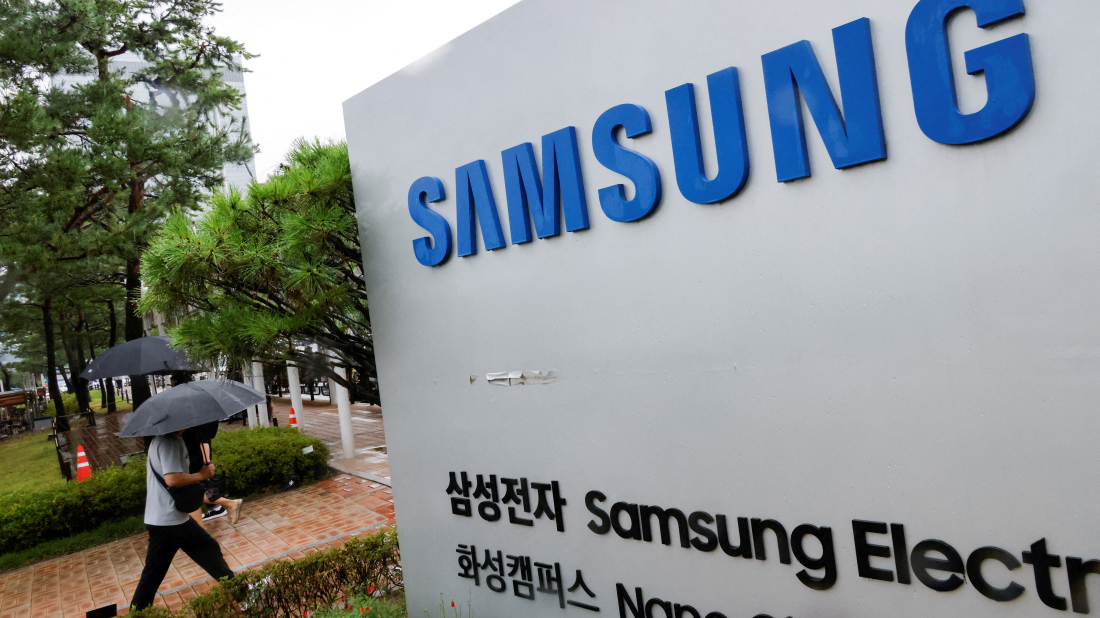British Steel wins multi-million-pound Türkiye high-speed rail contract
British Steel has secured a multi-million-pound order to supply rail for a major high-speed railway in Türkiye. Backed by UK Export Finance, the deal...

Samsung Electronics, the global leader in memory chips, smartphones, and televisions, has released its fourth-quarter operating profit estimate, revealing a significant shortfall compared to analyst expectations. The South Korean tech giant reported an estimated operating profit of 6.5 trillion won.
Samsung's fourth quater results, although a remarkable 131% increase from the same period last year, missed the consensus estimate of 7.7 trillion won, as projected by LSEG SmartEstimate.
The disappointing earnings were attributed to a number of factors, including Samsung’s struggles in the high-end chip market, where it faced fierce competition from rival SK Hynix. The company has been notably lagging behind SK Hynix in supplying premium chips to Nvidia, a key player in the semiconductor industry. Nvidia's demand for advanced chips, particularly those used in data centers and artificial intelligence (AI) applications, has surged in recent months, but Samsung has not kept pace with its competitors.
Samsung's business of designing and contract manufacturing logic chips also experienced a downturn during the quarter. The slowdown in global smartphone demand, combined with lower factory utilization rates and rising research and development costs, contributed to the overall decline in earnings from this segment. These challenges are particularly evident in the mobile industry, where demand has remained sluggish due to economic uncertainties and changing consumer preferences.
While Samsung’s estimated Q4 profit is still substantially higher than last year’s figures, it marks a significant decline of 29% from the previous quarter. This drop in earnings highlights the ongoing challenges faced by Samsung’s semiconductor business, which has long been a major driver of the company's overall profitability. The slowdown in chip demand, coupled with intense competition from other memory chipmakers, has put pressure on Samsung's market position in recent months.
Despite the disappointing earnings report, Samsung’s shares initially dropped by 1% in early trading following the announcement. However, they later rebounded and rose more than 1%, suggesting that investors remain cautiously optimistic about the company's future prospects, particularly in the long term.
Samsung's ability to regain momentum in its semiconductor business will be crucial to its overall performance in 2025. As competition in the chip industry intensifies, Samsung will need to adapt to changing market dynamics and invest in new technologies to stay competitive. The company’s ability to meet the growing demand for high-end chips, especially those used in AI and data centers, will play a pivotal role in shaping its financial outlook in the coming months.
Cuba’s fuel crisis has turned into a waste crisis, with rubbish piling up on most street corners in Havana as many collection trucks lack enough petrol to operate.
Ruben Vardanyan has been sentenced to 20 years in prison by the Baku Military Court after being found guilty of a series of offences including war crimes, terrorism and crimes against humanity.
Canadian Prime Minister, Mark Carney, announced on 16 February that the Honourable Janice Charette has been appointed as the next Chief Trade Negotiator to the United States. She's been tasked with overseeing the upcoming review of the Canada-United States-Mexico Agreement (CUSMA).
The Pentagon has threatened to designate artificial intelligence firm Anthropic as a “supply chain risk” amid a dispute over the military use of its Claude AI model, according to a report published Monday.
Israeli airstrikes on southern Lebanon killed two people in 12 hours, Lebanon’s Health Ministry said on Tuesday.
Millions of Colombian roses have arrived in the United States just in time for Valentine’s Day, keeping the country on track as the world’s second-largest flower exporter. Between 15 January and 9 February, Colombia shipped roughly 65,000 tons of fresh-cut blooms.
Russia’s car market is continuing to receive tens of thousands of foreign-brand vehicles via China despite sanctions imposed after Moscow’s full-scale invasion of Ukraine in 2022, a journalistic investigation has found.
Türkiye’s national energy company, TPAO, has struck a new cooperation deal with U.S. energy giant Chevron, signing a memorandum of understanding to explore joint oil and gas exploration and production opportunities, the Turkish Energy and Natural Resources Ministry announced on Thursday.
Wall Street ended sharply lower on Tuesday as investors worried about artificial intelligence (AI) creating more competition for software makers, keeping them on edge ahead of quarterly reports from Alphabet and Amazon later this week.
U.S. stock markets finished mixed on Wednesday (28 January) as investors reacted calmly after the Federal Reserve left interest rates unchanged, a decision that had been widely expected and largely priced in.
You can download the AnewZ application from Play Store and the App Store.

What is your opinion on this topic?
Leave the first comment